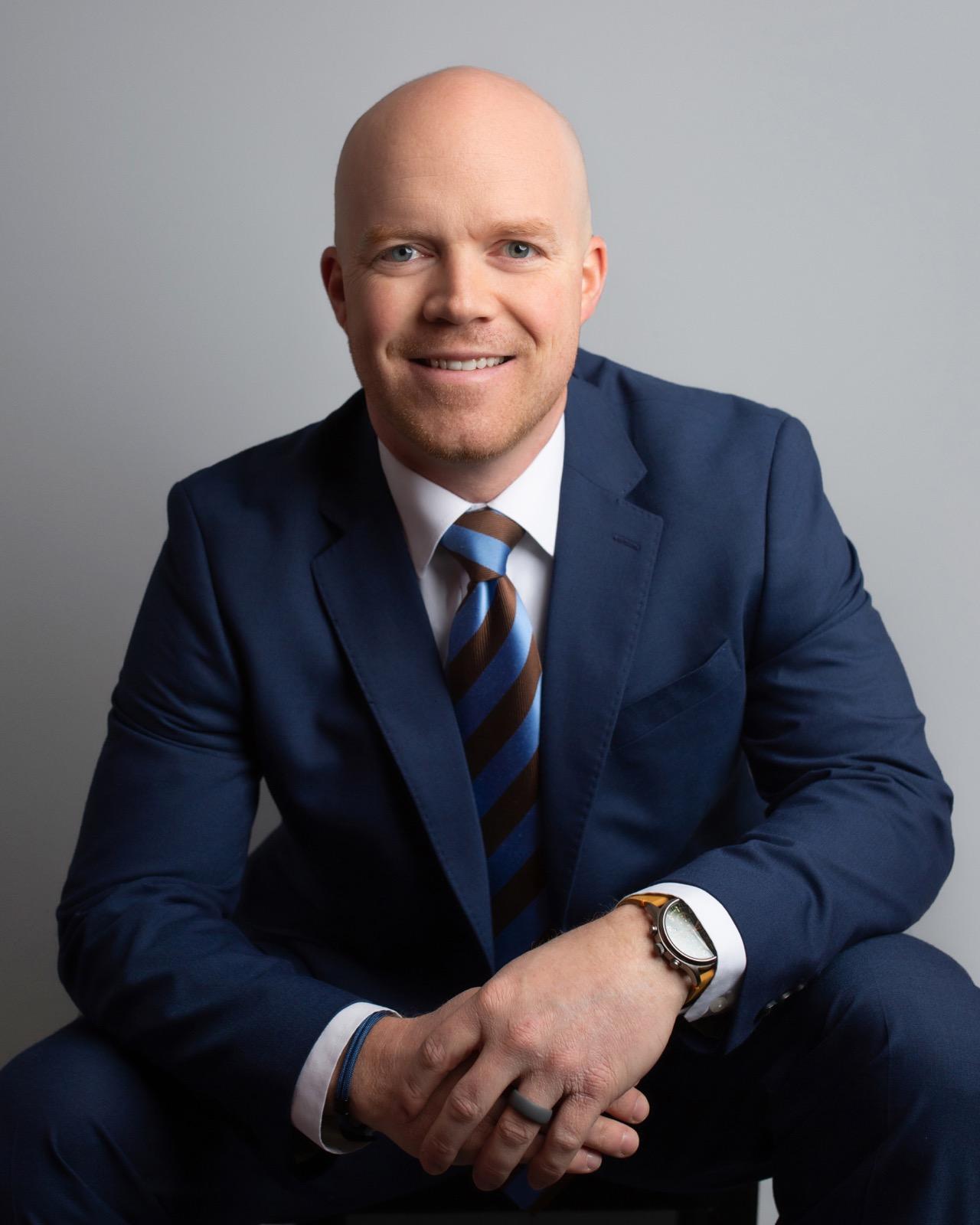The candidates for Missouri's 10th State Senate District agree on a need to cut state taxes but don't see eye-to-eye on the best approach.
Holts Summit Republican Travis Fitzwater and Lincoln County Libertarian Catherine Dreher are vying for the seat Sen. Jeanie Riddle, a Mokane Republican, is leaving because of term limits. State senators can serve up to two four-year terms and have an annual salary of about $37,711.
Fitzwater, who is term-limited in the Missouri House, defeated four primary opponents in August to become the Republican Party nominee. Dreher was unopposed during the primary election season.
The Missouri General Assembly passed a $764 million income tax cut package in late September as the result of a special legislative session called by Gov. Mike Parson. After vetoing a tax credit plan lawmakers passed in the spring, the Republican governor was seeking a cut to the top income tax rate that would reduce it from 5.3 percent to 4.8 percent.
That's not what lawmakers delivered. Instead, the state's top income tax rate was reduced to 4.95 percent and will continue down to 4.5 percent in four additional steps if revenue growth meets specified targets.
Fitzwater said the tax cut, which he voted for in the House, provides real relief and encourages economic investments among taxpayers, whereas Dreher said the bill was rushed and lawmakers had at least two other avenues for providing more substantial relief.
Fitzwater said the issue he's heard most about while campaigning has been getting relief for rising prices. People, particularly those on fixed incomes, are concerned, he said.
"Every little bit helps, and I know a lot of people kind of think that it's not a big deal, but reducing our income tax is a huge deal for everybody across the income levels," Fitzwater said. "And I think it was an important thing to do with the amount of money we have in state coffers."
Missouri ended the last fiscal year with a $5 billion surplus in its general revenue fund.
Moving beyond the Hancock Amendment that already provides taxpayers a refund when state revenue exceeds certain thresholds, Fitzwater and Dreher said the state should return money to Missourians when there's a budget surplus.
Dreher said tax cuts put more money in people's pockets, which means more freedom to "improve our quality of life as we see fit."
"It's always a good time to cut taxes," she said. "However, we had two better options."
Dreher said lawmakers should have cut the 12.5-cent gas tax increase signed into law in 2021, the first two 2.5-cent increments of which are already in effect.
And, she said, lawmakers should have left the income tax structure untouched because it would have fallen to 4.8 percent if general revenue is $150 million more than the highest annual revenue in the past three years.
"I think the best avenue for relief would have been to give the surplus to MoDOT and repeal the gas tax," Dreher said. "Within several years, we would have an even lower income tax rate than the one voted on plus no gas tax."
Much of the debate among lawmakers during the special session was whether the tax cut would substantially insulate Missourians from rising prices caused by inflation.
Missouri Budget Project, an independent public policy research and analysis group, estimated the tax cut would save the state's lowest 20 percent of income earners about $3 per year and the state's top 1 percent of income earners more than $4,200 per year.
The state's middle 20 percent of income earners -- those making anywhere from $40,000-$66,000 a year -- would save around $66 in taxes for the first year and around $131 after the plan is fully implemented in about a decade, according to the Missouri Budget Project.
Fitzwater said those return estimates are annual and reducing income taxes is important because it encourages investment while reducing the role of government. He said the new tax structure benefits startups and new companies taxed through personal income, though a Republican-led effort to reduce corporate income taxes failed.
"There are a lot of benefits. It's just going to, hopefully, put more money back in the economy through investment," he said. "Missourians spend their money a lot better than the government does."
When asked why an income tax reduction was the right vehicle for relief, Fitzwater said he supports looking at reducing all state taxes.
He sponsored a bill to create a six-month gas tax holiday last session, but it didn't move past a public hearing. He also supported the regular session bill that Parson vetoed that would have created a $500 tax credit program.
Fitzwater said the permanent tax relief plan signed into law wasn't necessarily better than the $500 tax credit plan he supported, but "anytime you can reduce the income tax I'm all for it."
He said he's supported sales tax exemptions for certain products and has been interested in the property tax discussion legislators from the St. Charles area have pushed, but the governor's call was narrowly aimed at income tax cuts.
"I think we ought to look at everything," Fitzwater said. "Right now, what the governor had in his call was for individual income tax. That was what the task was for the special session. So I think we ought to be looking at everything."
Dreher said the General Assembly should have waited for a full regular session to pass permanent tax cuts and that the income tax vote was "rushed through" to vote on agricultural tax credits.
Despite the tax cut reducing overall state revenue, Fitzwater said he would continue supporting pay increases for state workers.
He said Missouri businesses across the board are struggling with workforce issues and state agencies are no different.
"We certainly have to have the conversation about how do we compete with the market on pay for state employees, especially at the Fulton State Hospital and some of these areas where state employees are taking a risk even working there and are doing a phenomenal job," Fitzwater said. "They could make the same amount to start at a fast food chain in town."
Fitzwater said generally, though, the size of state government is too large and needs to be reduced. He said he wants to have conversations about reducing the size of Missouri's government while taking care of state employees.
If elected, Fitzwater said he's interested in taking aim at government buildings, infrastructure and programs that aren't serving taxpayer priorities.
"There's a lot of fluff in state government and in our budget," he said, adding: "We need to do a better job of ensuring we can take care of Missourians in a lean and efficient manner, and that's not necessarily what the government does."
Dreher said she doesn't think the loss of state revenue will prevent Missouri from increasing state worker pay or agencies from advancing their priorities.


